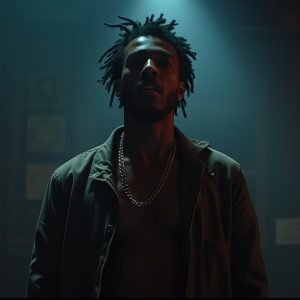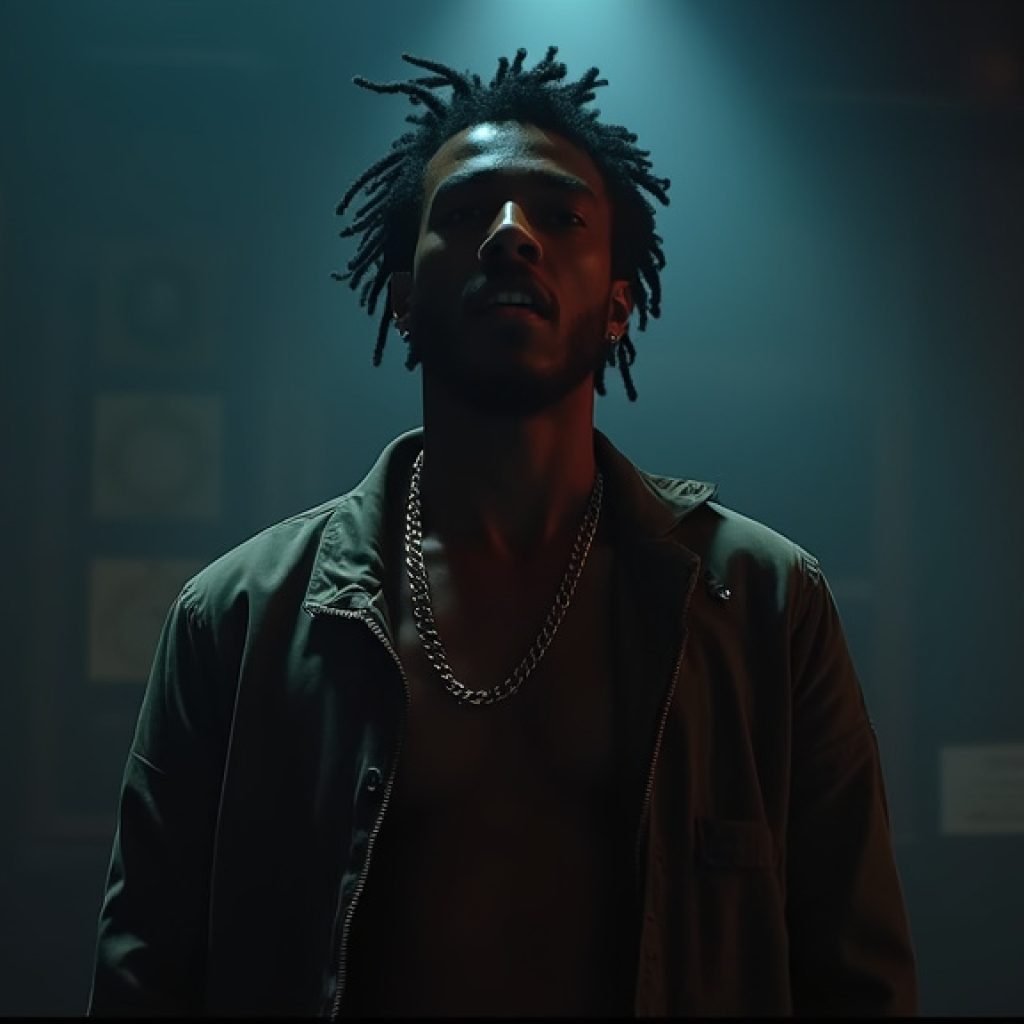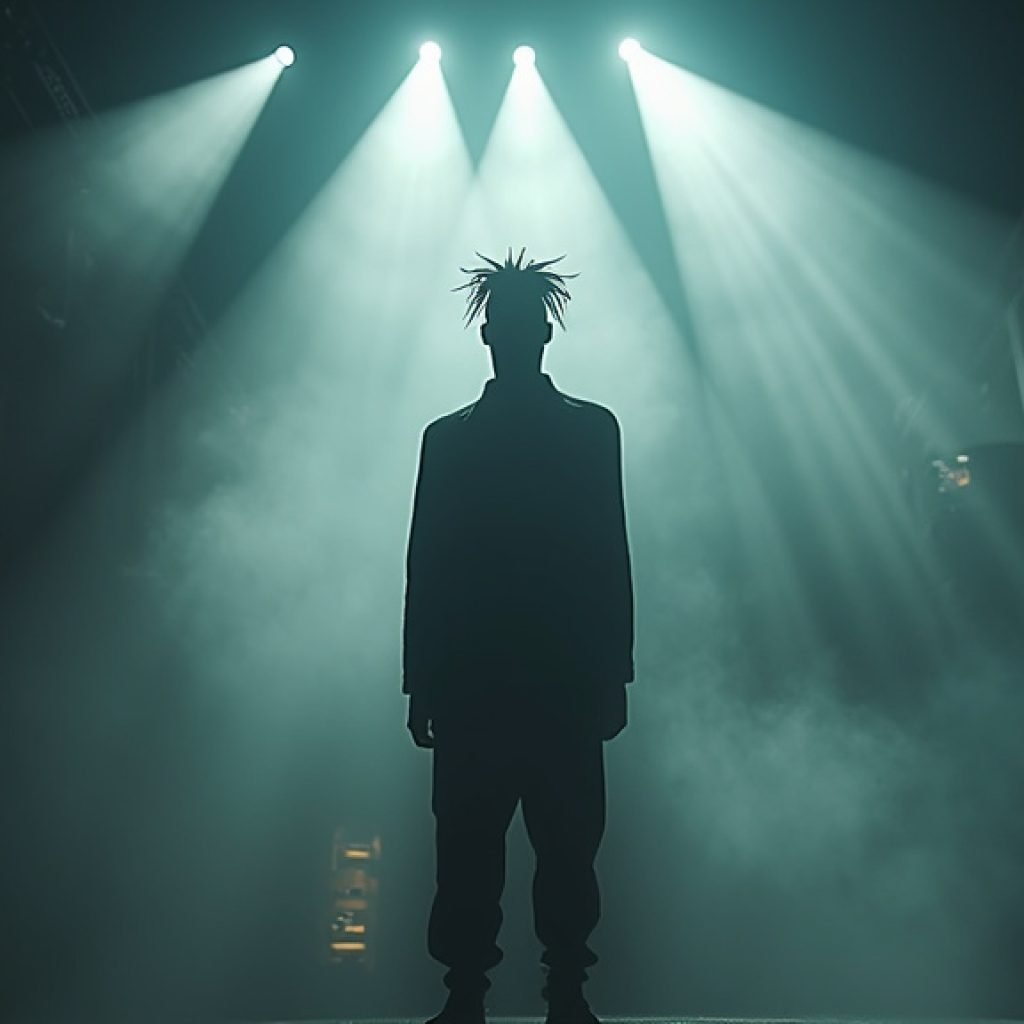The acclaimed Irish hip hop group Kneecap has been forced to cancel its entire 15-date U.S. tour, originally scheduled for October, citing the proximity of a critical court hearing in London. The decision comes amidst ongoing legal challenges faced by band member Liam Óg Ó hAnnaidh, known by his stage name Mo Chara, and follows a period of significant controversy stemming from the group’s outspoken political activism.
Court Date Forces U.S. Tour Halt
In a statement shared across social media platforms, Kneecap announced the cancellation of all U.S. dates. The band explained that the scheduling of their next court appearance in London on September 26 made it impossible to proceed with their planned North American shows. “Due to the proximity of our next court hearing in London to the first date of the tour,” the statement read, “we will have to cancel all 15 U.S. tour dates in October.” The group expressed their regret to their U.S. fanbase, acknowledging that every show was fully sold out, and promised to reschedule with an “even bigger tour” once their legal case is resolved.
The legal troubles for Mo Chara stem from a terrorism charge brought against him in the UK in May. Prosecutors allege that the 27-year-old displayed a flag in support of Hezbollah, a designated terrorist organization in the UK, during a London concert in November of the previous year. Mo Chara has vehemently denied the charge. Kneecap’s legal team has argued that the case should be dismissed due to a technical error in how the charge was filed, and a crucial hearing on September 26 will determine if he will stand trial. The band has characterized the proceedings as “political policing” and a “carnival of distraction,” asserting that they do not support Hamas or Hezbollah and claim that any footage of the incident has been taken out of context.
Canadian Shows to Proceed, U.S. Fans Promised a Surprise
While the U.S. tour has been called off, Kneecap confirmed that their scheduled Canadian shows in Vancouver and Toronto will proceed as planned. The band also hinted at a special announcement for their U.S. fans in the coming week, aiming to “still link” with them in October despite the tour’s cancellation, though details remained top secret.
Background of Controversy: Coachella and Political Stance
The U.S. tour cancellation is the latest development in a series of controversies that have surrounded Kneecap, particularly following their high-profile appearances at the Coachella music festival earlier in the year. Known for their politically charged performances, the Belfast-based trio used their sets to voice strong criticism of Israel’s actions in Gaza and express solidarity with the Palestinian people. During their performances, messages projected onto screens included accusations of genocide against Palestinians and condemnation of U.S. support for Israel, along with chants of “Free Palestine.”
These statements drew significant backlash from some conservative commentators and organizations, with figures like Sharon Osbourne calling for the band’s U.S. work visas to be revoked. Fox News commentators also criticized the band’s stance. Kneecap responded to the criticism by stating, “Statements aren’t aggressive, murdering 20,000 children is though.” Their manager also noted the band had received death threats following their Coachella performances.
Broader Implications and Previous Disruptions
The group’s outspoken activism has also led to other disruptions. In April, Kneecap parted ways with their booking agency, Independent Artist Group, though the exact reasons for the split remain unclear but occurred in the wake of the Coachella controversy. The band was also barred from entering Hungary for a performance at the Sziget Festival, with Hungarian authorities citing “antisemitic hate speech supporting terrorism and terrorist groups.” The band has consistently denied these accusations, maintaining their commitment to artistic freedom and truth-telling.
The legal and logistical challenges faced by Kneecap highlight the increasing intersection of political expression, social activism, and the music industry. As a prominent voice in the Irish hip hop scene, the band’s commitment to their message has resonated with a growing fanbase, even as it has placed them at the center of intense public scrutiny and legal challenges. The group’s recent activity and the cancellation of their U.S. tour have become one of the top stories in the independent music sphere, sparking debate about free speech, censorship, and the role of artists in political discourse. Despite these setbacks, Kneecap has vowed to continue their fight and connect with their audience, promising that their message and their music will persevere.
This situation underscores the delicate balance artists often navigate when their art and activism intersect with sensitive geopolitical issues and legal frameworks, making Kneecap’s story a compelling narrative in contemporary music and politics.

























